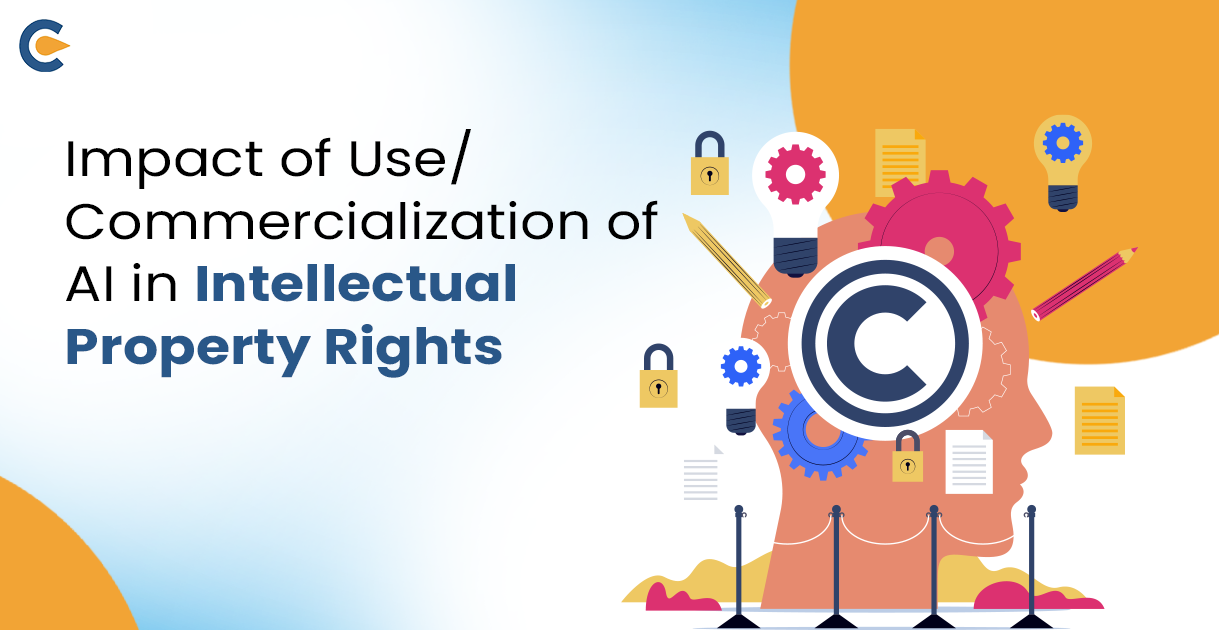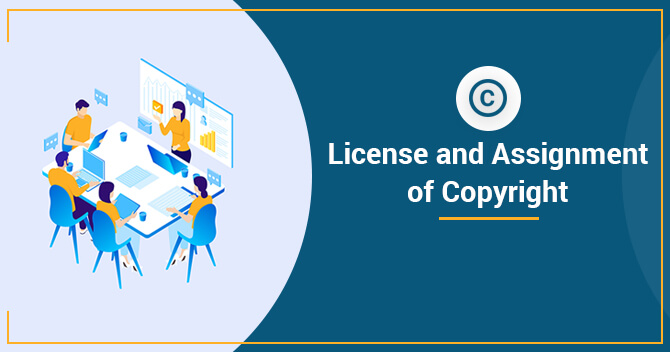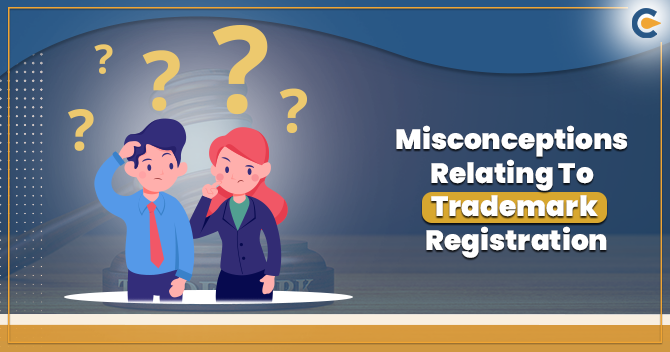In today’s rapidly evolving tech-centric world, Artificial Intelligence (AI) systems have garnered considerable attention and momentum. These advanced technologies are now on the cusp of producing remarkable inventions without any human involvement. This imminent reality raises critical questions about Intellectual Property Rights (IPR). It challenges conventional notions of patents and copyrights and introduces complex issues surrounding the regulation and governance of AI-generated innovations, among other pertinent concerns.
In today’s business environment, Artificial Intelligence (AI) has become omnipresent, finding its way into various aspects of operations, including chatbots, healthcare services, and information generation. While AI serves to optimize innovative processes, its integration into products, services, and operational procedures has raised significant concerns across the spectrum of Intellectual Property (IP) law.
As a result, the intersection of AI in Intellectual Property Rights law has captured the attention of experts in the field worldwide. Numerous studies and works have delved into the specific challenges and complexities that arise at this juncture, underscoring the pressing need to address the intricate relationship between AI and intellectual property rights.
The possibilities and benefits, as well as the accompanying risks, presented by AI are vast, and with the current rate of AI development, the landscape can indeed become overwhelming. Irrespective of these pros and cons, it’s clear that the commercialization of AI is inevitable.
This underscores a critical question: Do we possess the necessary legal frameworks to effectively address the challenges stemming from the commercialization and utilization of AI? Regrettably, the answer is negative.
AI’s Impact on Intellectual Property Rights (IPR)
As we embark on the journey into the emerging digital landscape, it becomes increasingly evident that Artificial Intelligence (AI) will exert a substantial impact on our existing legal frameworks and established norms. A prominent illustration of this transformation lies in our current Intellectual Property (IP) regime, which typically designates a ‘person’ as the recognized proprietor and owner of intellectual property.
However, with the rapid advancement of AI technologies, fundamental questions arise regarding the acknowledgment and attribution of creative works produced by AI systems. Given that AI lacks legal personhood, intricate challenges surface regarding authorship, ownership, and the protection of IP originating from AI. These shifting dynamics necessitate a comprehensive reassessment of our traditional IP laws and practices to ensure they remain relevant and just in the era shaped by AI. Ethical considerations surrounding AI in Intellectual Property Rights, such as bias and fairness, are becoming increasingly important in legal discussions.
Courts across the globe have often relied on the “sweat of the brow” principle, which underscores the significant effort and hard work invested by inventors in creating intellectual property (IP). However, applying this principle becomes increasingly complex when IP generated by AI enters the equation.
Simultaneously, the commercialization of AI may potentially erode IP rights, as AI systems can outperform humans in generating IP more quickly and efficiently. AI could eventually be seen as a ‘smarter’ form of inventor, requiring significantly less time and effort to produce IP eligible for registration. Moreover, beyond the challenges already mentioned, the commercial use of AI for IP generation is likely to give rise to a plethora of unforeseen issues. Urgent attention is required to identify and resolve these emerging challenges to establish a fair and effective legal framework in the evolving landscape of AI-driven IP creation.
At present, there exists no specific legal framework or provision designed to comprehensively regulate Artificial Intelligence (AI). Our current laws are primarily built upon traditional forms of intellectual property protection, such as literature, creative works, and inventions. However, AI’s complexities and capabilities extend well beyond these conventional categories, demanding a more specialized approach. The absence of dedicated AI regulations underscores the pressing need for the development of a distinct legal framework capable of effectively addressing the distinct challenges posed by AI technologies.
The World Intellectual Property Organization (WIPO) has recently initiated a noteworthy effort to solicit public feedback on the potential ramifications of Artificial Intelligence (AI) on the global intellectual property (IP) landscape. This initiative has involved press conferences aimed at addressing the imminent challenges posed by AI’s commercialization and utilization in the context of IP laws.
While the previous conference primarily concentrated on patent laws, there is an expectation that forthcoming sessions will adopt a more holistic approach, encompassing all aspects of IP regulations. Undoubtedly, the impact of AI in Intellectual Property Rights framework spans from the initial creation of IP to its valuation, commercialization, transfer, and assignment. This substantial transformation will necessitate a comprehensive overhaul of our current laws to adequately acknowledge and appreciate the investments, both in terms of time and resources, as well as the labour involved in AI creation and the utilization or transfer of IP generated by AI.
AI in Intellectual Property Rights: An Indian Outlook
WIPO has recently initiated discussions about the impact of AI on global IP laws, and member states are yet to formulate specific regulations concerning AI-based intellectual property. During the launch of the public consultation process on AI in Intellectual Property Rights policy, WIPO’s Director General, Mr. Francis Gurry, emphasized that artificial intelligence is poised to fundamentally transform our work and daily lives, offering solutions to global challenges while also raising important policy questions and challenges. However, it is worth noting that WIPO’s initiatives are still in their early stages, and member states, including India, are yet to formulate comprehensive AI-specific IP regulations.
In line with this, on December 13, 2019, WIPO released a ‘Draft Issues Paper on Intellectual Property Policy and Artificial Intelligence,’ aiming to gather feedback and opinions on the key IP policy issues expected to arise in the near future.
India has embraced AI as a catalyst for innovation and economic growth. The country’s approach to AI in Intellectual Property Rights reflects a balance between encouraging AI development and safeguarding IP rights. India’s IP laws, rooted in international agreements, offer protection for a wide range of creative works, including literary, artistic, and technological creations. However, India needs to address the specific challenges posed by AI-generated IP. This includes formulating clear guidelines for IP ownership, exploring new criteria for authorship, and considering the implications of AI’s rapid output on IP duration and protection.
In 2021, the Delhi High Court issued a significant ruling in the case of M/S Kibow Biotech v. M/S The Registrar of Trade Marks. The court’s decision was centered on the question of whether an AI system could be recognized as the owner of a trademark. In its ruling, the court upheld that the Trade Marks Act of 1999 stipulates that only a human being, legally categorized as a person, has the capacity to apply for and be officially registered as the proprietor of a trademark. Consequently, the court concluded that an AI system does not meet the legal criteria of personhood as defined by the Act and, therefore, cannot be regarded as a trademark proprietor.
In the legal case of Ferid Allani v. Union of India, the Delhi High Court examined the complex issue of whether AI-generated works could be eligible for copyright protection within the Indian legal framework. The court’s ruling clarified that AI-generated creations can indeed be granted copyright protection, but this is contingent upon these works meeting the established criteria for originality and authorship, as outlined in the Copyright Act of 1957.
Furthermore, the court emphasized the need to attribute authorship of AI-generated works to the individual who initiated the creation process, such as the programmer or user responsible for providing instructions to the AI system. This legal perspective aligns with the evolving nature of AI-generated content creation, acknowledging the pivotal role played by human intervention in the creative process.
In MySpace Inc. v. Super Cassettes Industries Ltd., another prominent case the Delhi High Court made a noteworthy determination. The court held that the utilization of an AI-based algorithm to identify and eliminate copyrighted content on a social media platform did not constitute a violation of the Copyright Act. The key factor in this decision was the AI algorithm’s action, which did not involve the reproduction of copyrighted material. As a result, it was deemed to fall within the legal boundaries of acceptable use under copyright law.
These legal cases serve as compelling examples that highlight the urgency for clear and updated intellectual property laws in India, capable of addressing the dynamic challenges presented by AI technology. The Indian judiciary has demonstrated a pragmatic and balanced approach in these instances, ensuring a harmonious coexistence between the promotion of innovation and the protection of AI in Intellectual Property Rights.
AI as IP Owner: Navigating Ownership in the Age of Artificial Intelligence
The emergence of AI as the holder of intellectual property rights for inventions or creative works prompts a range of inquiries regarding the concept of infringement. To begin, if AI is granted a position akin to that of an individual in the creation or invention of works, it logically extends to the notion that AI should be subject to the same considerations regarding infringement and enforcement. Nevertheless, when contemplating the scenario of AI software being sued for infringement or autonomously entering into legally binding contracts, the practicality and legality of such actions become highly questionable. This raises significant doubts about whether AI can legitimately attain the status of a legal entity. Furthermore, the issue of accountability arises when AI is implicated in infringing the rights of a third party, especially in the realm of copyright. In situations where an AI system replicates an author’s work, the digital environment’s accessibility to a plethora of content can potentially
simplify the process of proving that the infringing AI had access to the protected material. AI’s seamless access to digital content enhances the feasibility of demonstrating such access, as AI systems possess the capability to rapidly scan and analyze extensive digital archives.
Thirdly, the issue of transparency concerning AI systems and their possession of intellectual property rights becomes a significant consideration. When AI systems are protected as trade secrets, it can potentially impede the openness associated with these AI systems. In our evolving society, there is a growing need for transparency and responsibility in decision-making processes.
Hence, the pressing question of the moment becomes, “How should transparency be handled in cases involving machine cognition processes that integrate multiple data sources, undergo dynamic development, and include opaque elements, whether for technological or legal reasons?”
At present, the adjudication of matters related to AI in Intellectual Property Rights primarily falls within the purview of the courts. However, there is a clear need for the establishment of structured, analyzed, and unambiguous rules and regulations in this domain. Existing Intellectual Property Rights laws must undergo amendments to effectively address the challenges posed by AI. The integration of AI in Intellectual Property Rights has the potential to yield substantial benefits for future innovations. India, in particular, has been actively exploring avenues in this regard. A 2018 discussion paper by Niti Aayog highlighted the significance of AI across various sectors, including healthcare, education, and infrastructure.
Conclusion
The evolving landscape of AI in Intellectual Property Rights (IPR) presents a global challenge that demands careful consideration and proactive action. As AI continues to drive innovation and transformation across various industries, it simultaneously raises complex questions regarding ownership, accountability, transparency, and the need for updated legal frameworks.
The impact of AI in Intellectual Property Rights underscores the necessity for adaptable and nuanced regulations that balance the rights of creators, innovators, and the emerging capabilities of intelligent machines. While the courts are currently addressing these issues, there is a growing call for comprehensive, well-structured, and forward-thinking rules and regulations that can foster innovation, ensure transparency, and safeguard intellectual property rights in the age of AI.
Read Our Article: Understand Definition, Scope, Benefits and Types of IPR











